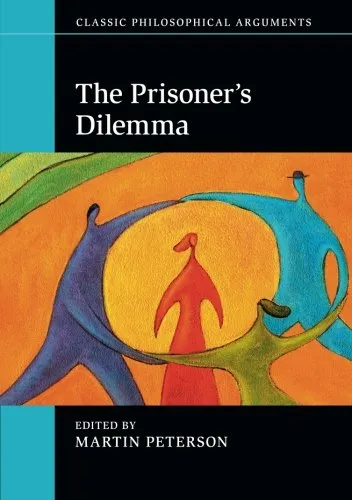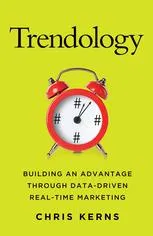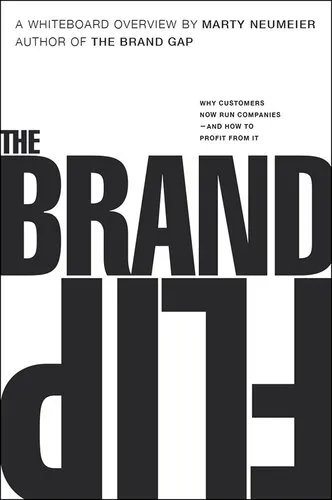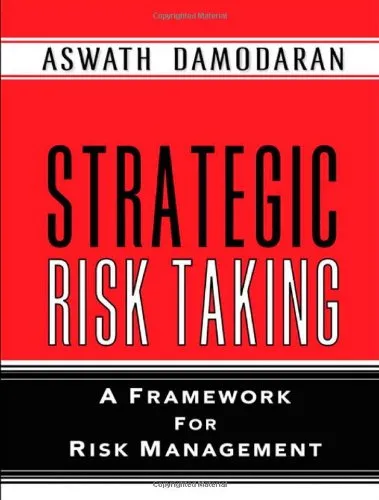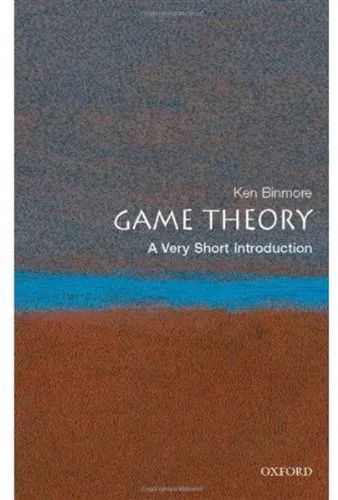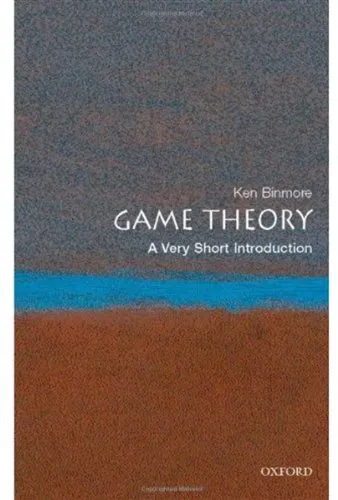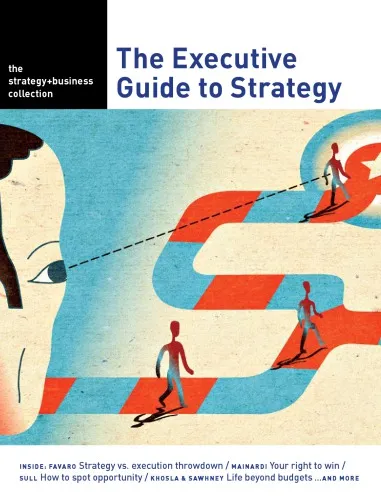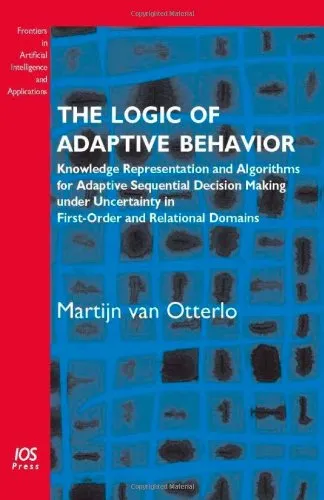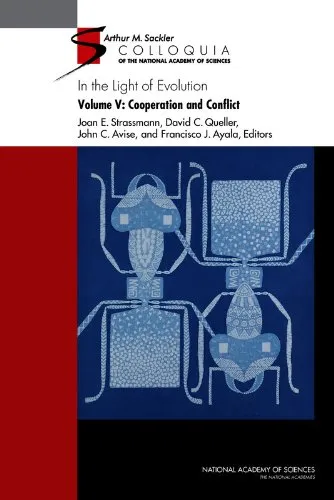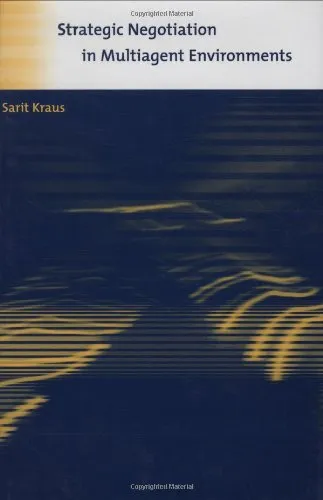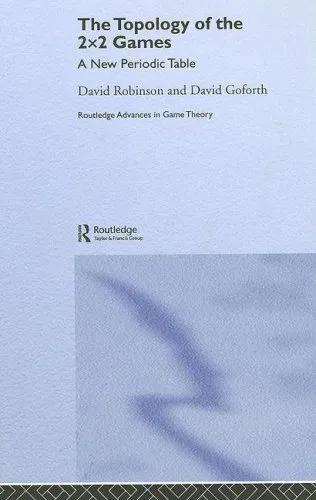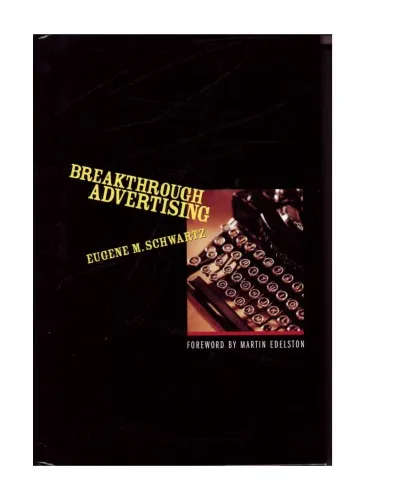The Prisoner’s Dilemma
4.9
Reviews from our users

You Can Ask your questions from this book's AI after Login
Each download or ask from book AI costs 2 points. To earn more free points, please visit the Points Guide Page and complete some valuable actions.Related Refrences:
Introduction to "The Prisoner’s Dilemma"
"The Prisoner’s Dilemma" is an exploration of one of the most compelling concepts in game theory and how it applies to critical decisions in our lives, society, and global systems. Written by Martin Peterson, this book delves into the philosophical, psychological, and mathematical dimensions of decision-making, weaving the story of cooperation and conflict in a way that’s accessible to readers from all walks of life. Through real-world examples, theoretical investigation, and practical applications, the book challenges you to rethink how we interact with one another in a competitive and interdependent world.
Detailed Summary of the Book
"The Prisoner’s Dilemma" revolves around the famous theoretical scenario in game theory that describes how individuals might not cooperate, even if it’s in their best interest to do so. The book begins by introducing the basic premise: two prisoners are caught and interrogated separately. If both prisoners cooperate (stay silent), they will receive a lighter punishment. However, if one betrays the other, he walks free while the other gets a harsh penalty. If both betray, they both receive moderate punishment. This deceptively simple scenario opens the door to a deeper philosophical inquiry into human behavior.
The book goes on to explain the broader implications of the prisoner’s dilemma in areas ranging from economics to politics, environmental challenges, and personal relationships. By using engaging historical examples and modern case studies, the narrative ties abstract theories to everyday decision-making. Whether it’s global nuclear disarmament or deciding whether to split or steal on a game show, the principles of the prisoner’s dilemma resonate throughout our lives.
Moreover, the book explores variations of the dilemma, such as iterated and multiplayer versions, and introduces strategies like "Tit-for-Tat" and "Always Defect." Each chapter builds on key concepts, making the content engaging and informative, whether you’re a game theory novice or an expert.
Key Takeaways
- The prisoner’s dilemma illustrates a fundamental tension between individual rationality and collective well-being.
- Game theory provides valuable insights into social cooperation, competition, and conflict resolution.
- The strategies and outcomes from the dilemma can be applied to real-life problems like climate change, political negotiations, and personal relationships.
- Understanding and addressing the prisoner’s dilemma requires a balanced approach to self-interest and altruism.
Famous Quotes from the Book
“In the absence of trust, suspicion thrives; in the presence of trust, collaboration flourishes.”
“The prisoner’s dilemma is more than a thought experiment; it’s a mirror that reflects the inner workings of our social fabric.”
“Decision-making is an art and science, and game theory teaches us to blend logic with empathy.”
Why This Book Matters
"The Prisoner’s Dilemma" matters because it addresses one of the most enduring challenges of human existence: how to balance individual needs and collective goals. The book’s insights extend far beyond academic theories, influencing disciplines like ethics, economics, politics, psychology, and sociology. By understanding the dynamics of cooperation and competition, readers gain tools to navigate complex real-world challenges, from resolving workplace disputes to fostering international peace.
Furthermore, the book emphasizes the importance of trust, communication, and empathy in developing solutions to the prisoner’s dilemma. These principles are not merely abstract ideals but practical guidelines for improving relationships and building a more cooperative society. "The Prisoner’s Dilemma" serves as both a thought-provoking academic inquiry and a practical guide to better decision-making in our interconnected world.
Free Direct Download
You Can Download this book after Login
Accessing books through legal platforms and public libraries not only supports the rights of authors and publishers but also contributes to the sustainability of reading culture. Before downloading, please take a moment to consider these options.
Find this book on other platforms:
WorldCat helps you find books in libraries worldwide.
See ratings, reviews, and discussions on Goodreads.
Find and buy rare or used books on AbeBooks.
1358
بازدید4.9
امتیاز0
نظر98%
رضایتReviews:
4.9
Based on 0 users review
Questions & Answers
Ask questions about this book or help others by answering
No questions yet. Be the first to ask!
